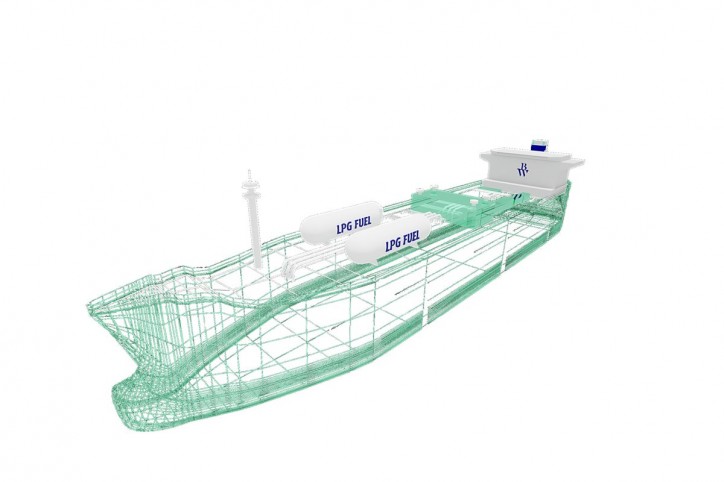BW LPG announced Thursday (Aug 30) that it has signed contracts including future options for the delivery and retrofitting of four LPG-propelled dual-fuel engines in its fleet, in a world’s first initiative. BW LPG expects the first retrofitting to take place in conjunction with scheduled drydockings starting 2020.

Says Martin Ackermann, BW LPG CEO, “BW LPG has been preparing for IMO 2020 for years and today, I am pleased to announce that we have signed contracts for the delivery and retrofitting of four LPG-propelled dual-fuel engines. We will be the global pioneer in operating next-generation, high-tech green ships with dual-fuel propulsion. Responsible operations and profitability are not conflicting goals - rather, they are preconditions for each other. This retrofitting is just one way in which we ensure that our shareholders invest in a forward-looking company that positions itself well for future challenges.”
With LPG propulsion, BW LPG will reduce its sulphur oxide emissions by up to 97 percent, allowing for full compliance with all current and future sulphur emissions requirements. This means the retrofitted ships, when operating on LPG, will go beyond IMO’s global 0.5% sulphur emissions cap to also be in full compliance with Emission Control Areas (ECA) and Sulphur Emission Control Areas’ (SECA) 0.1% sulphur cap. In addition, with LPG fuel, BW LPG will reduce emissions of particulate matters by ~90 percent, greenhouse gases by ~25 percent, and nitrogen oxides by ~20 percent. Above and beyond compliance, BW LPG is proud to move the maritime industry a step towards a cleaner future.
LPG as a marine fuel offers efficiency gains on many fronts. Output efficiencies will improve by ~11 percent with LPG when compared with compliant fuels. This means that we capture significant improvements in total voyage fuel economics. Other efficiencies gained with LPG include easy storage, faster refueling and wide availability of bunkering ships and facilities. All these ensure that LPG is a long-term sustainable marine fuel.
LPG as a marine fuel is also future-proof and cost-efficient. In addition to savings from reduced
fuel consumption, we are buffered from price sensitivity to post-2020 fuel price scenarios with full dual fuel flexibility. Even at today’s pricing, LPG is advantageous vs heavy fuel oil, offering high life-time saving prospects.
LPG propulsion means that engines are cleaner, cheaper to maintain and provide higher efficiency. Dual-fuel engines provides fuel flexibility, which means full redundancy to ensure uninterrupted operations. Conversion to LPG propelled dual-fuel engines is a life-cycle upgrade and long-term commitment.
Source: BW LPG